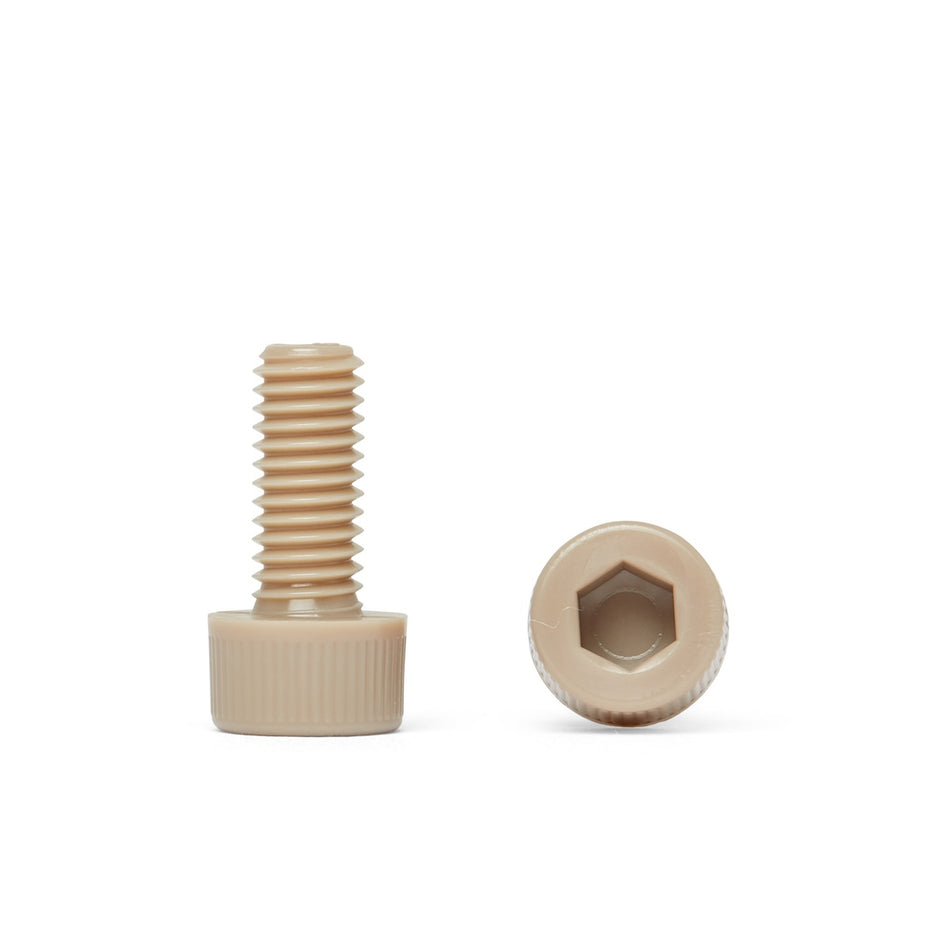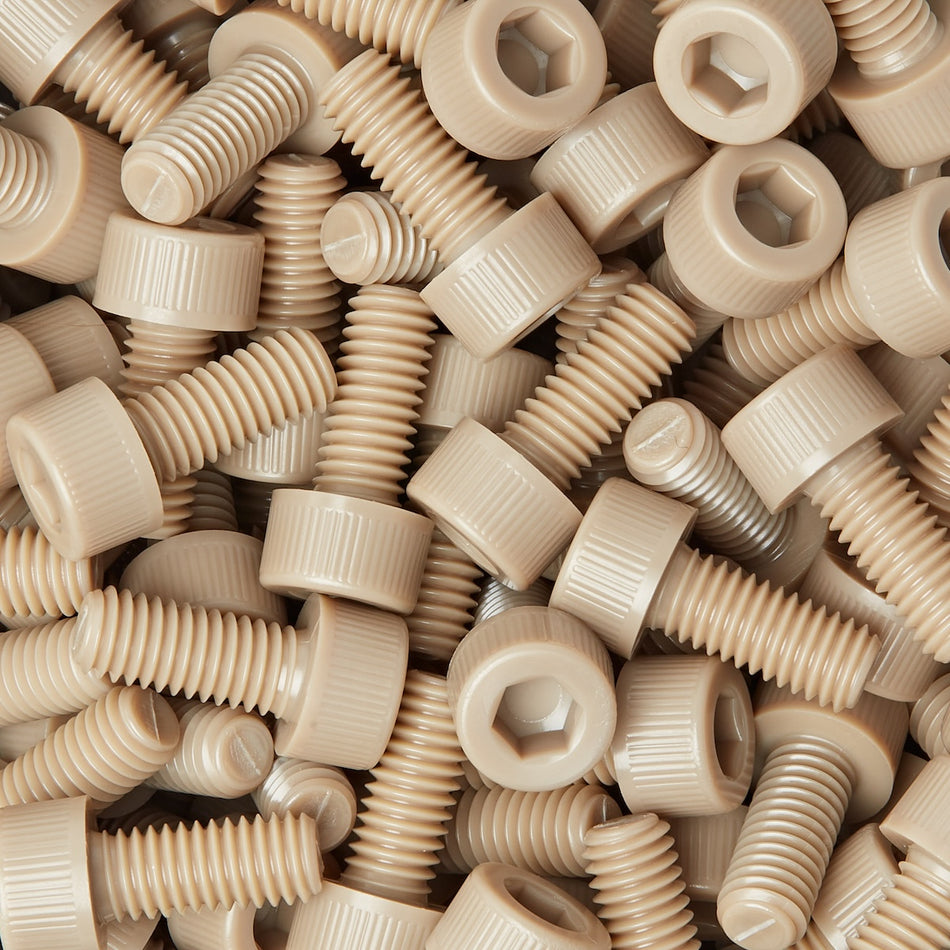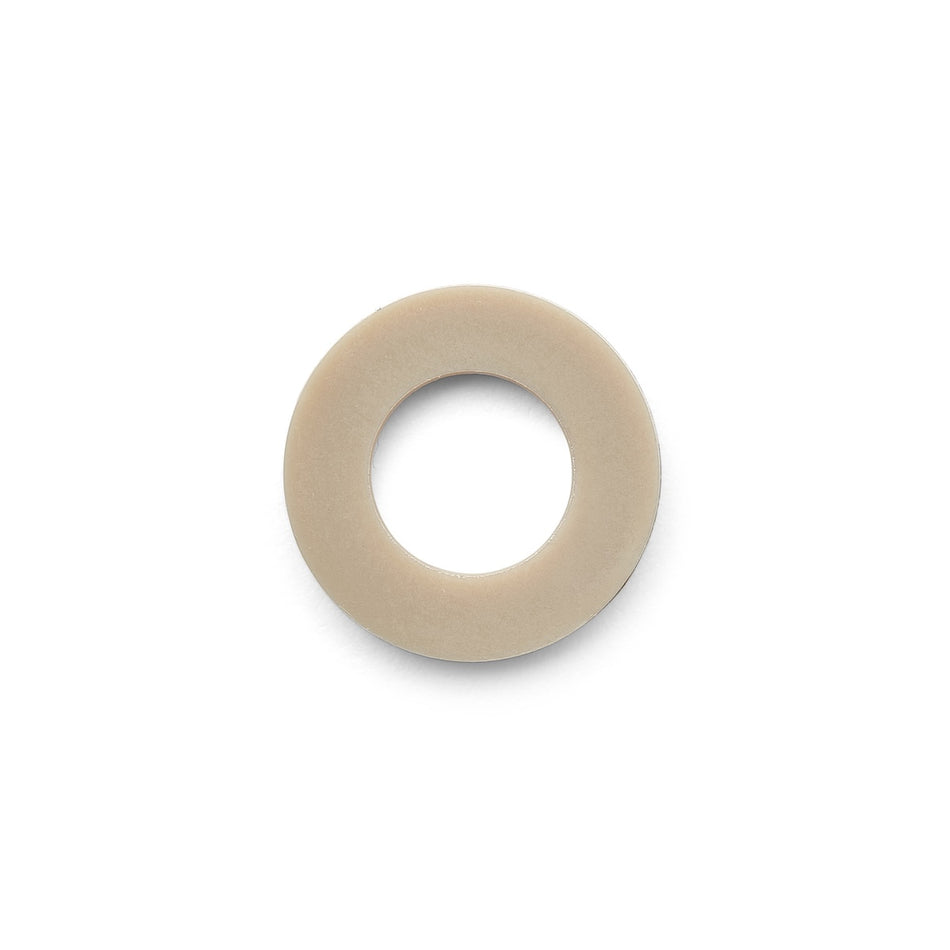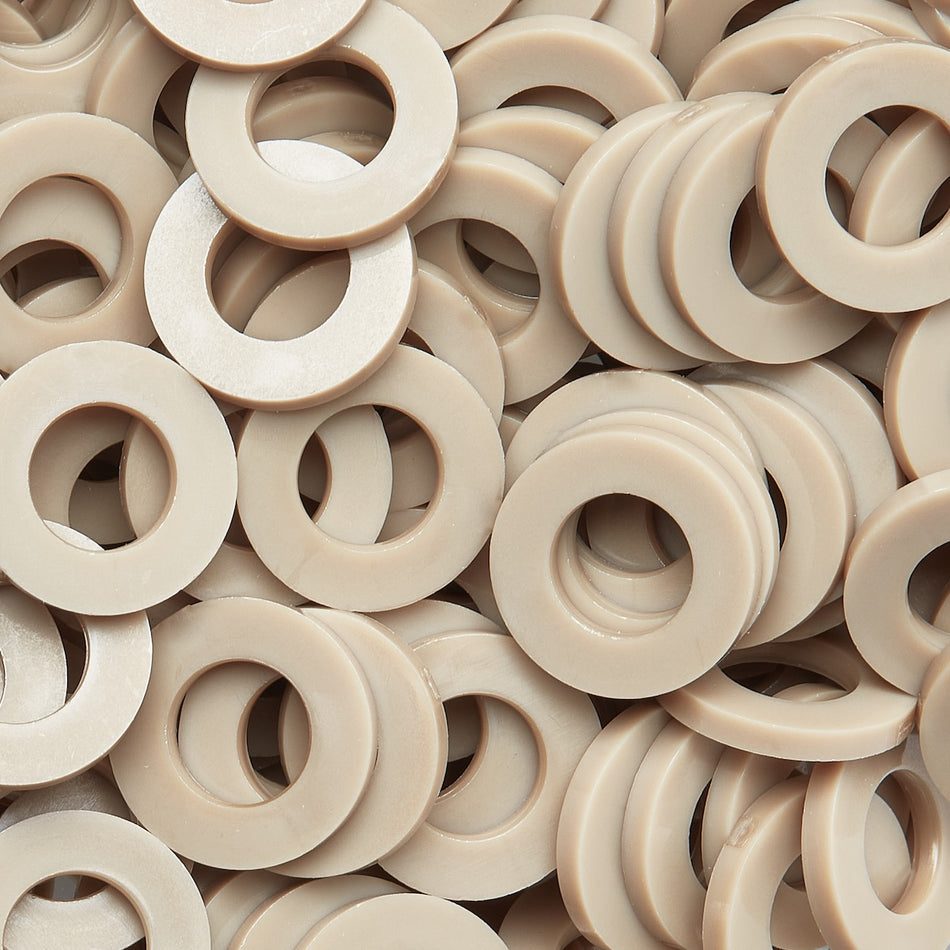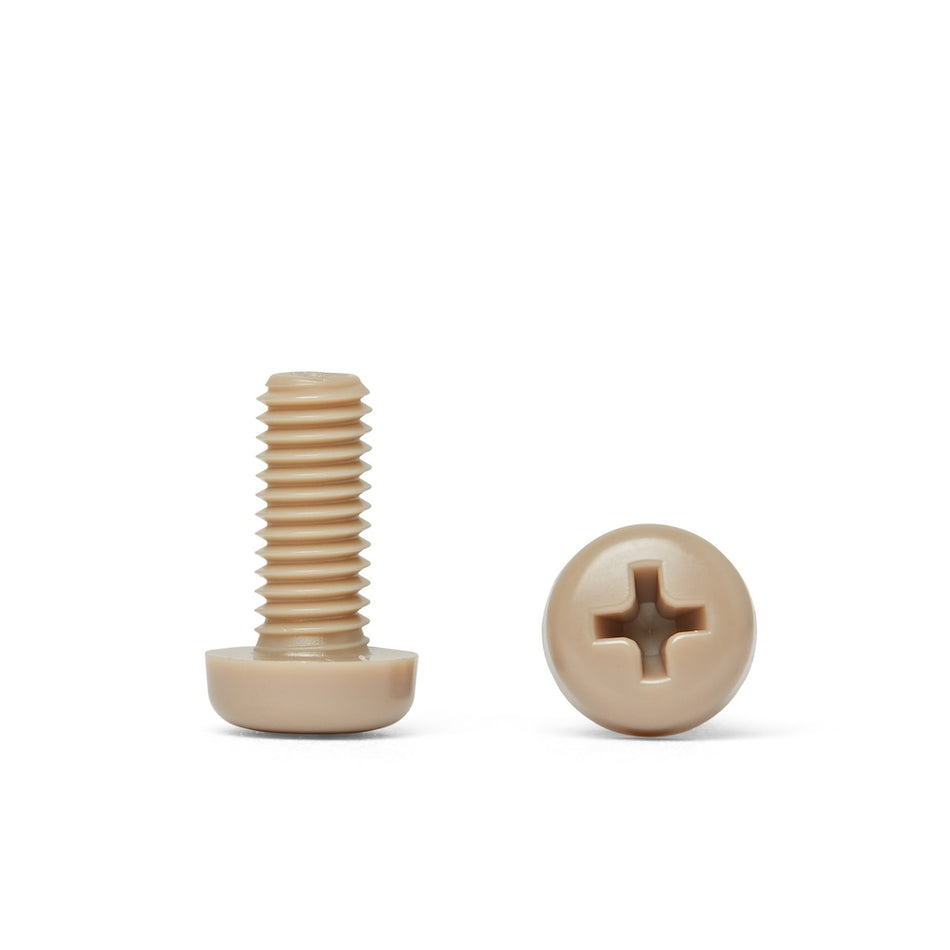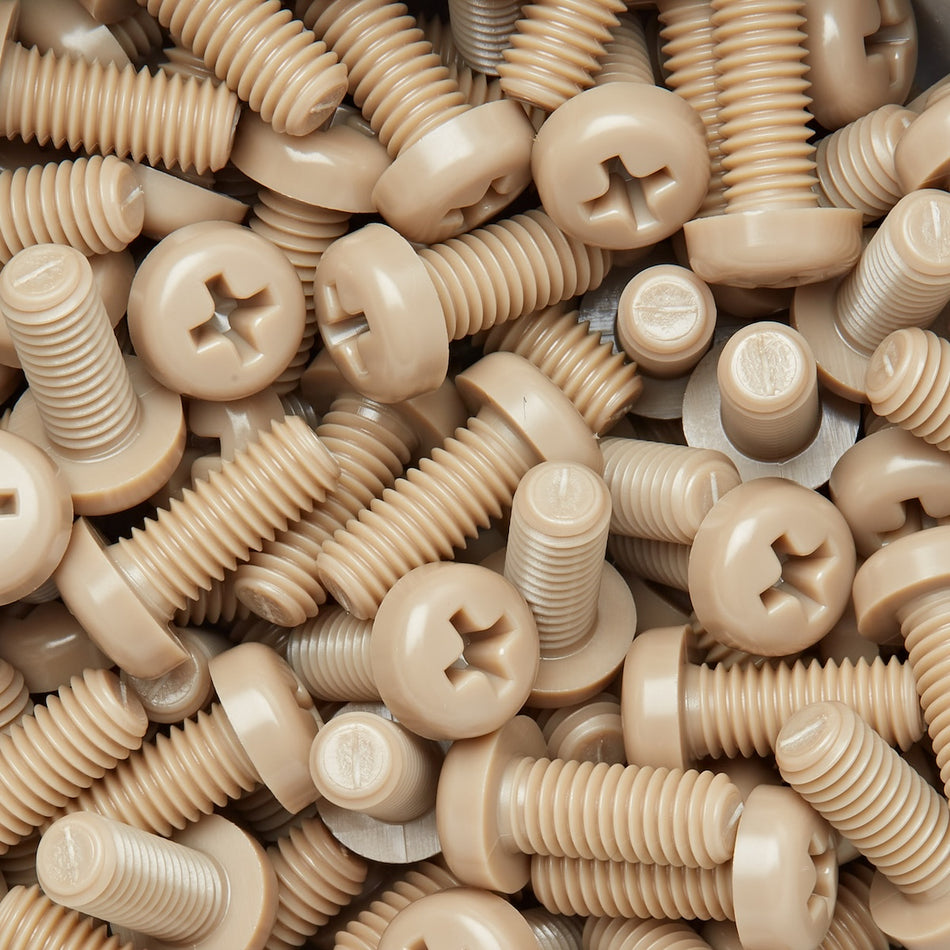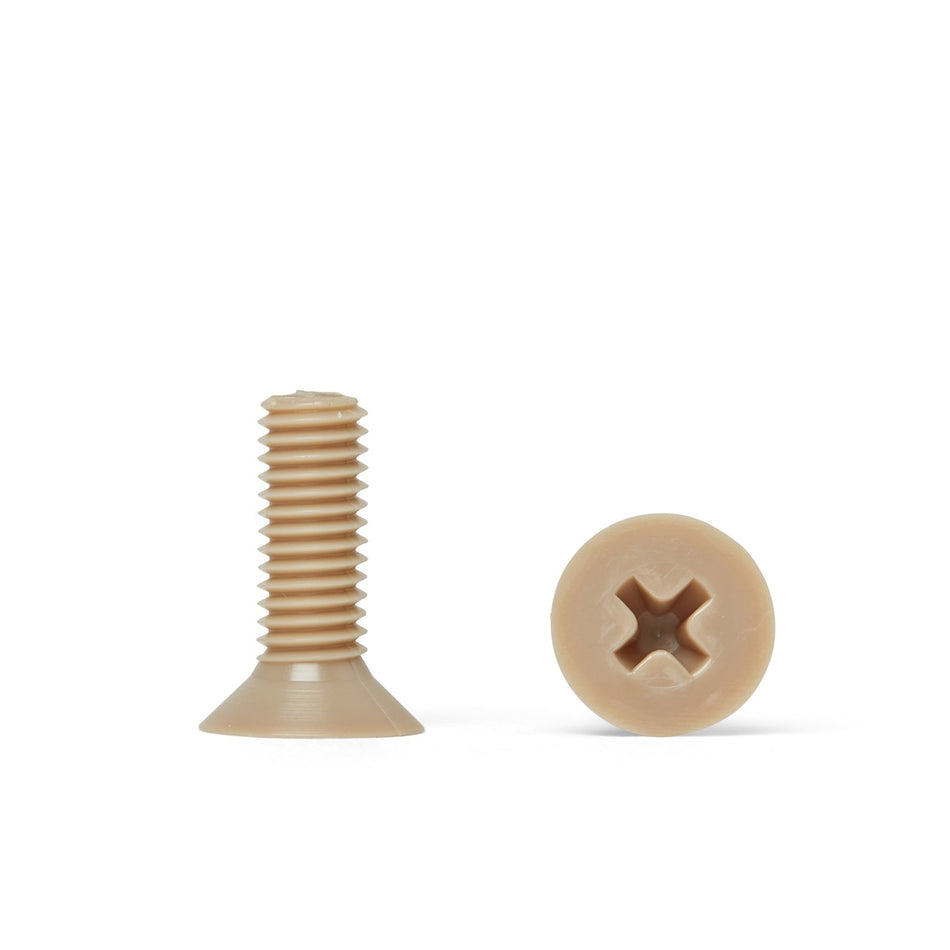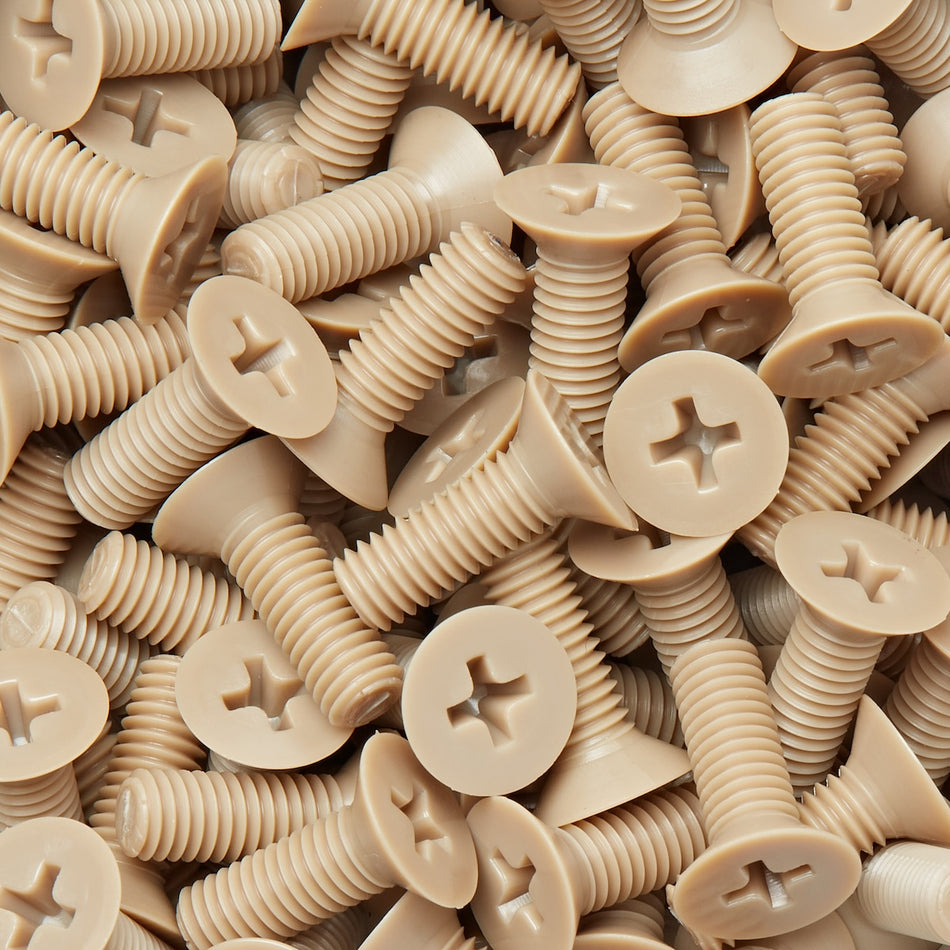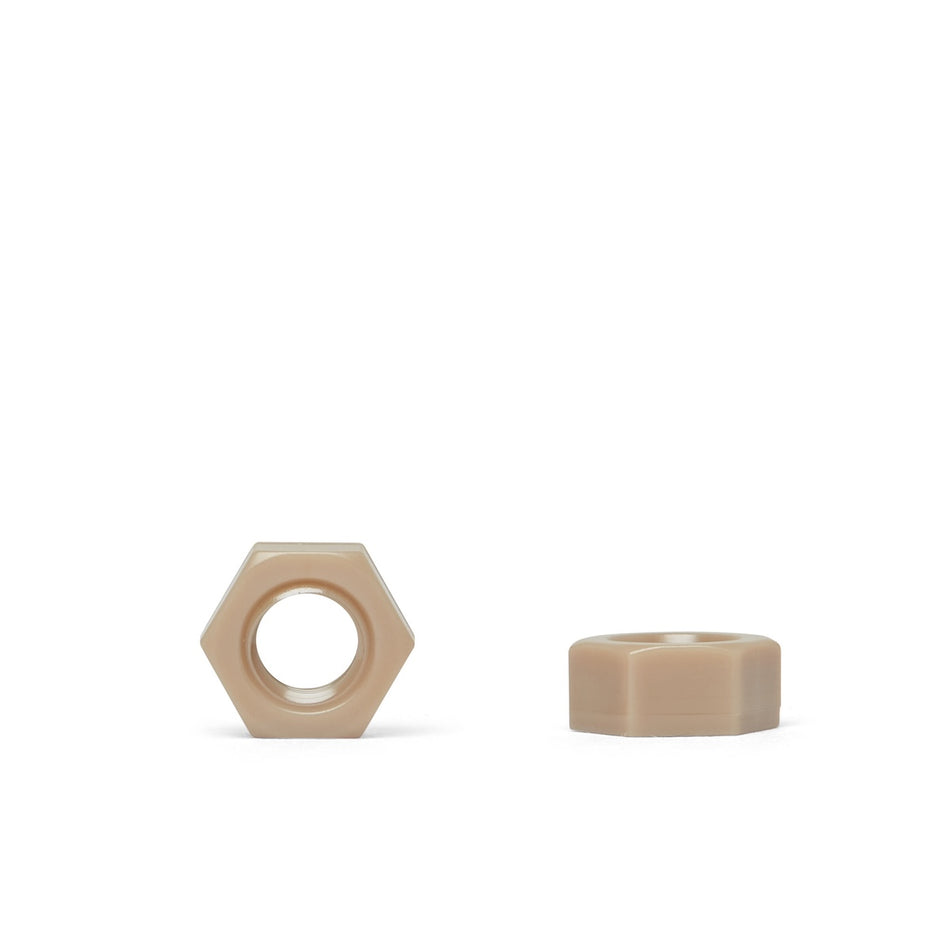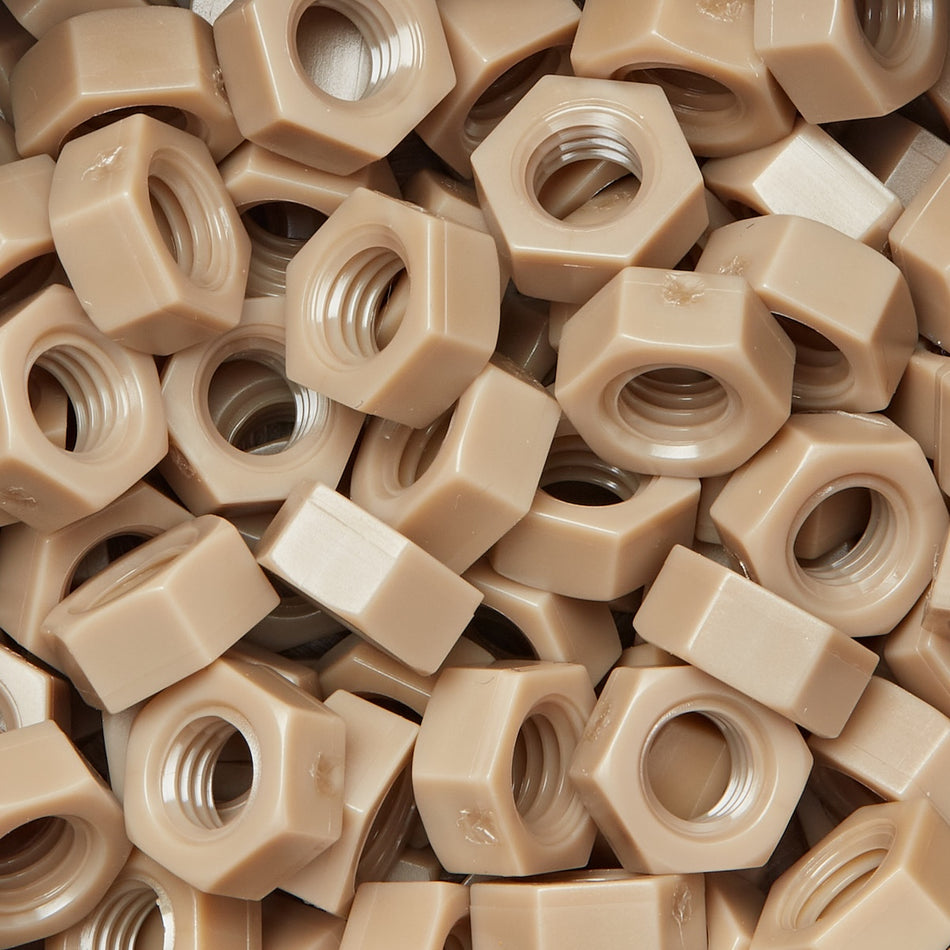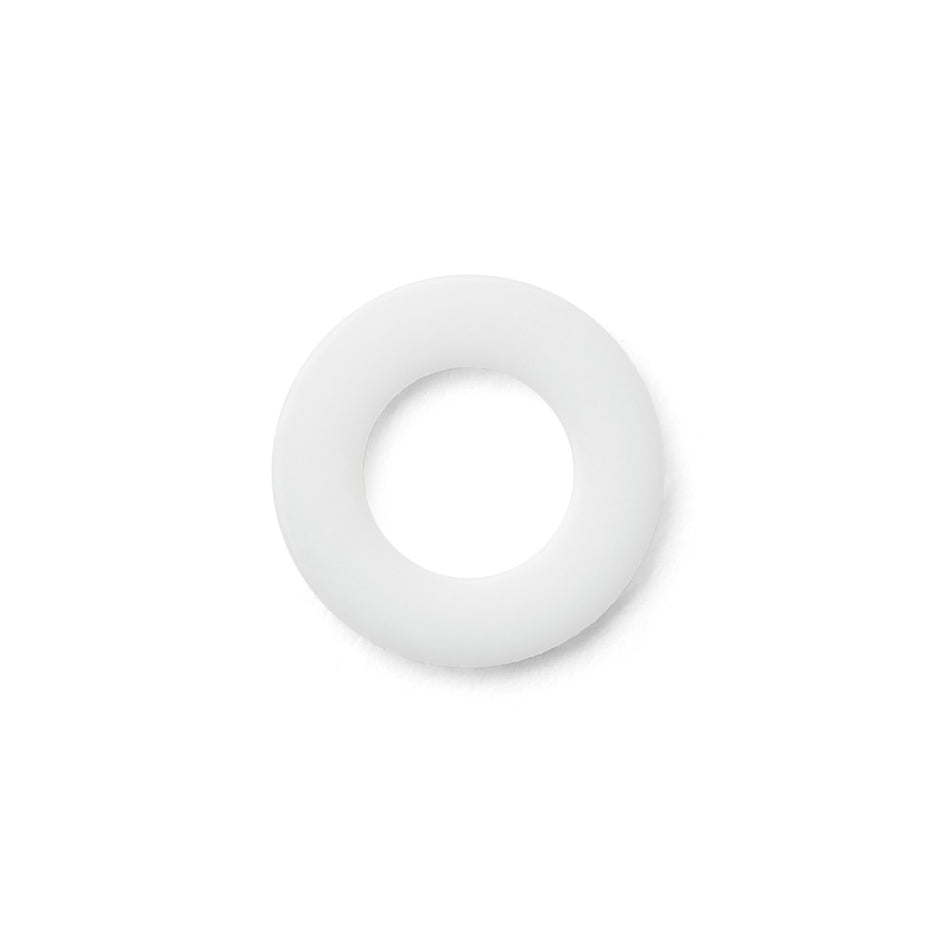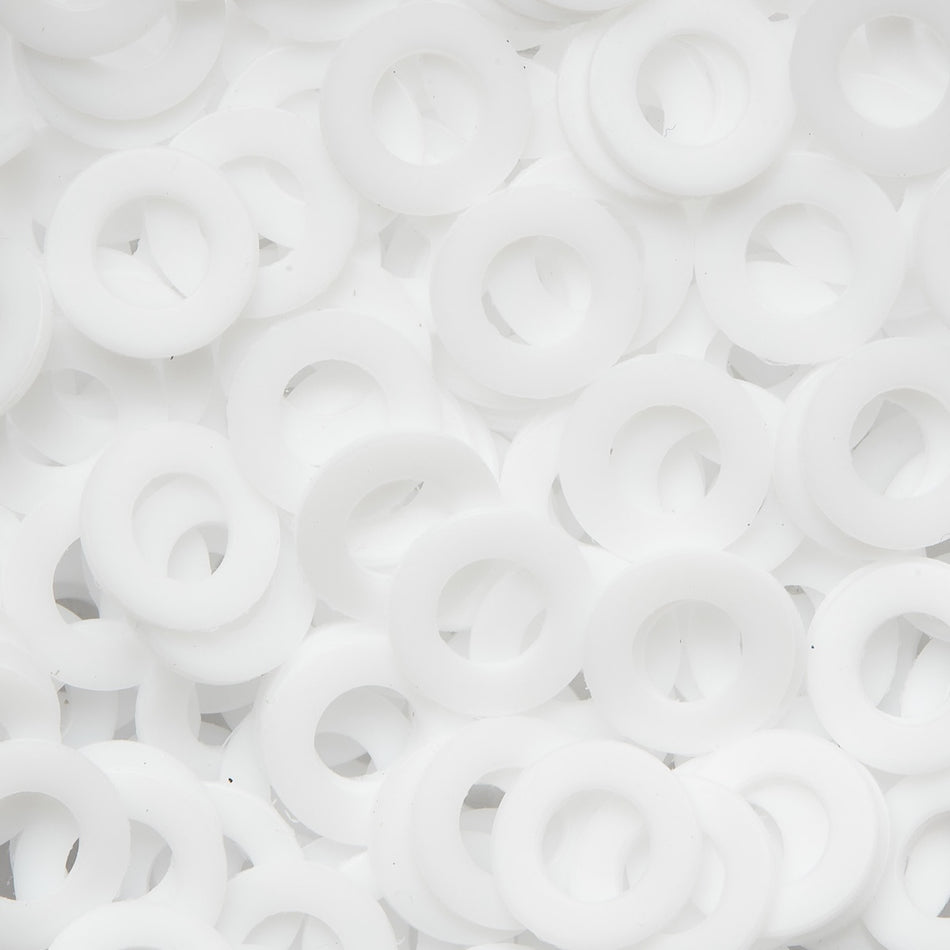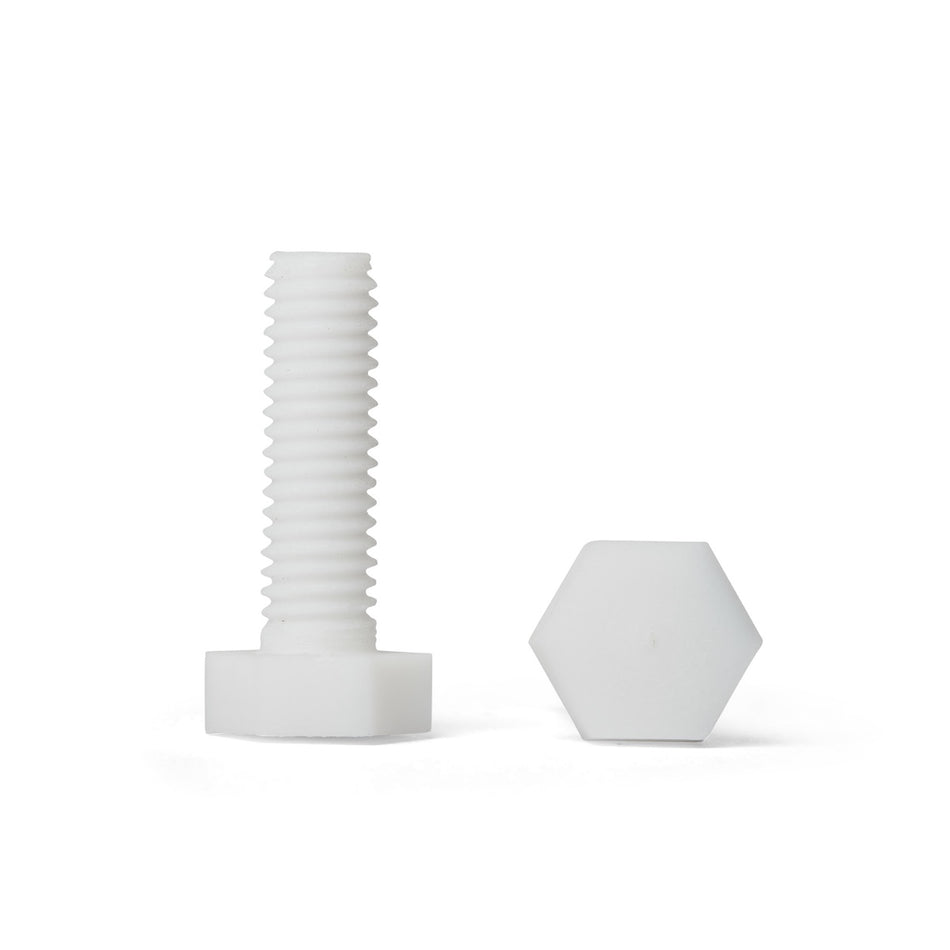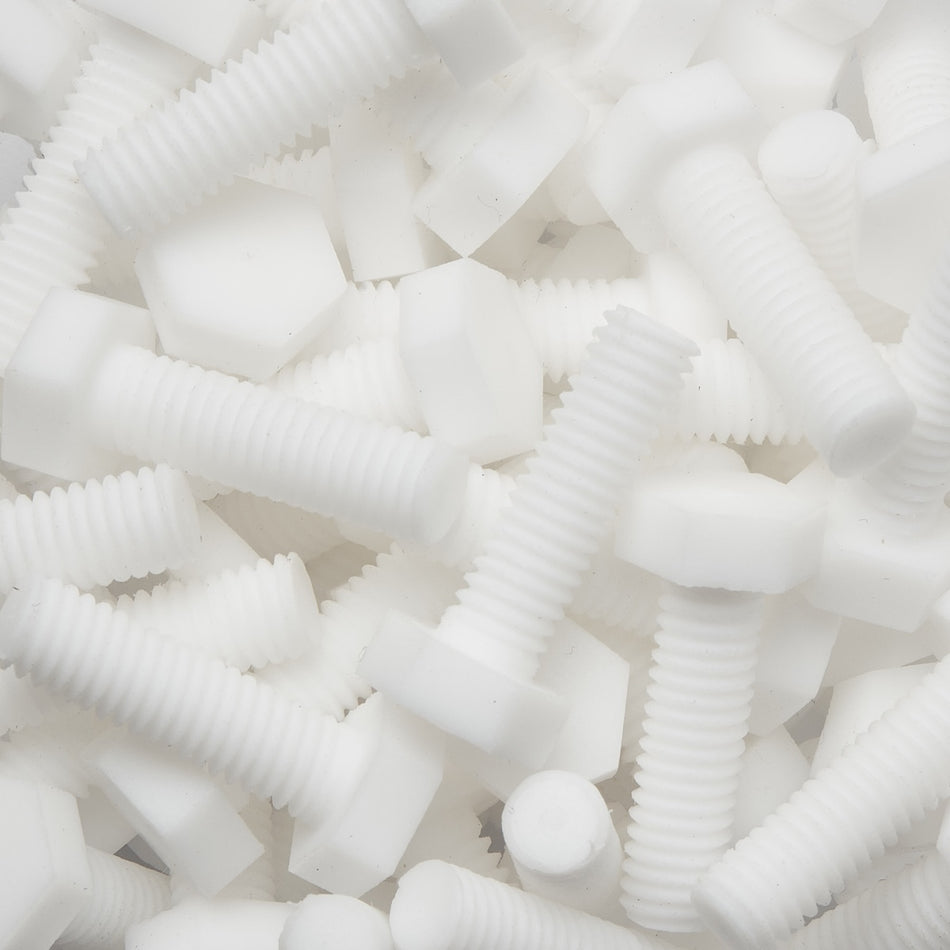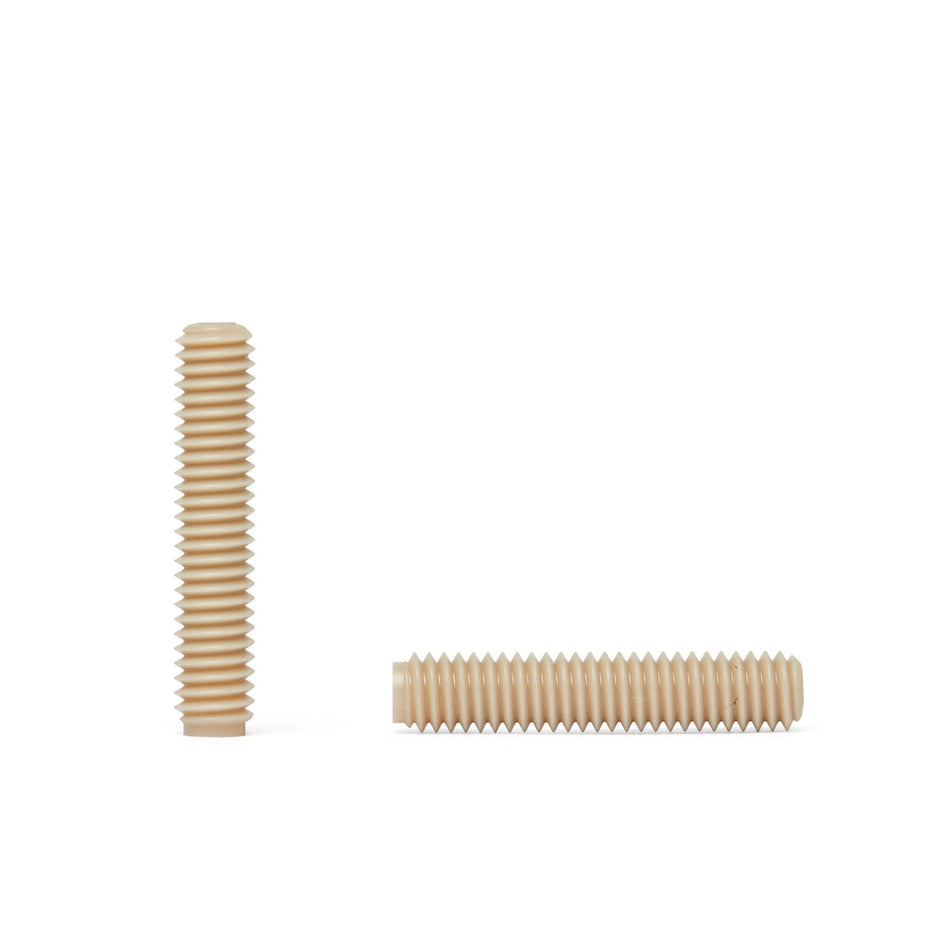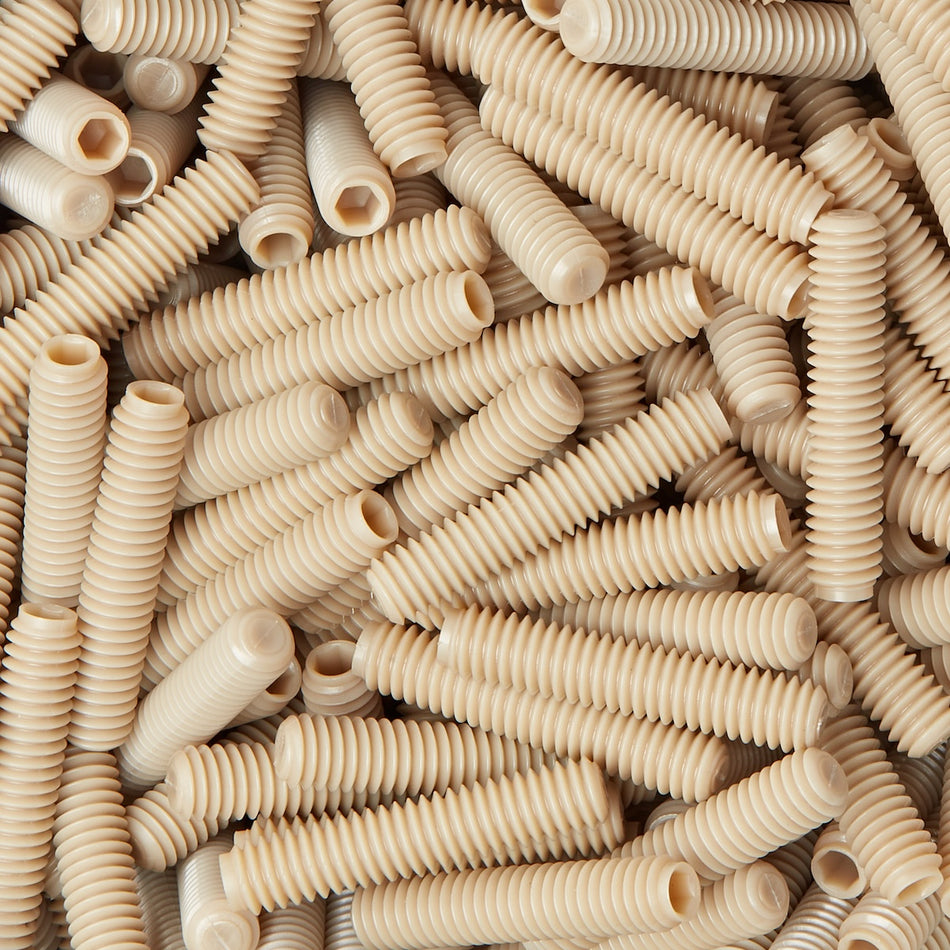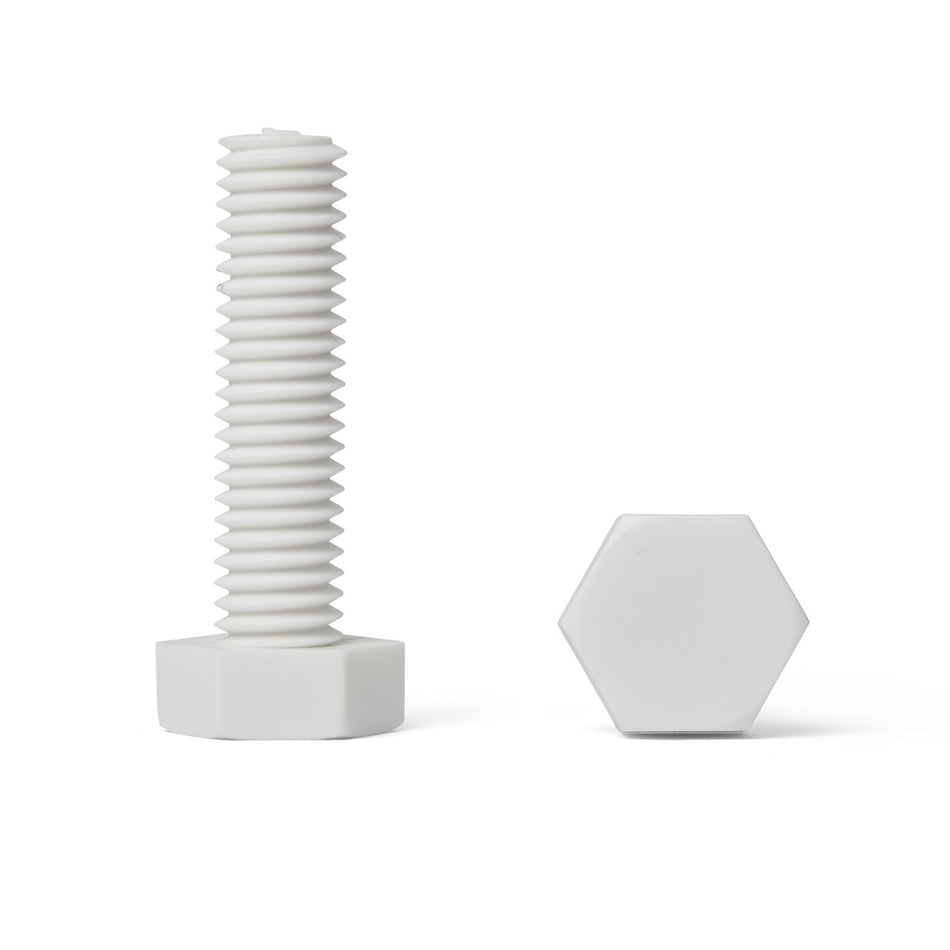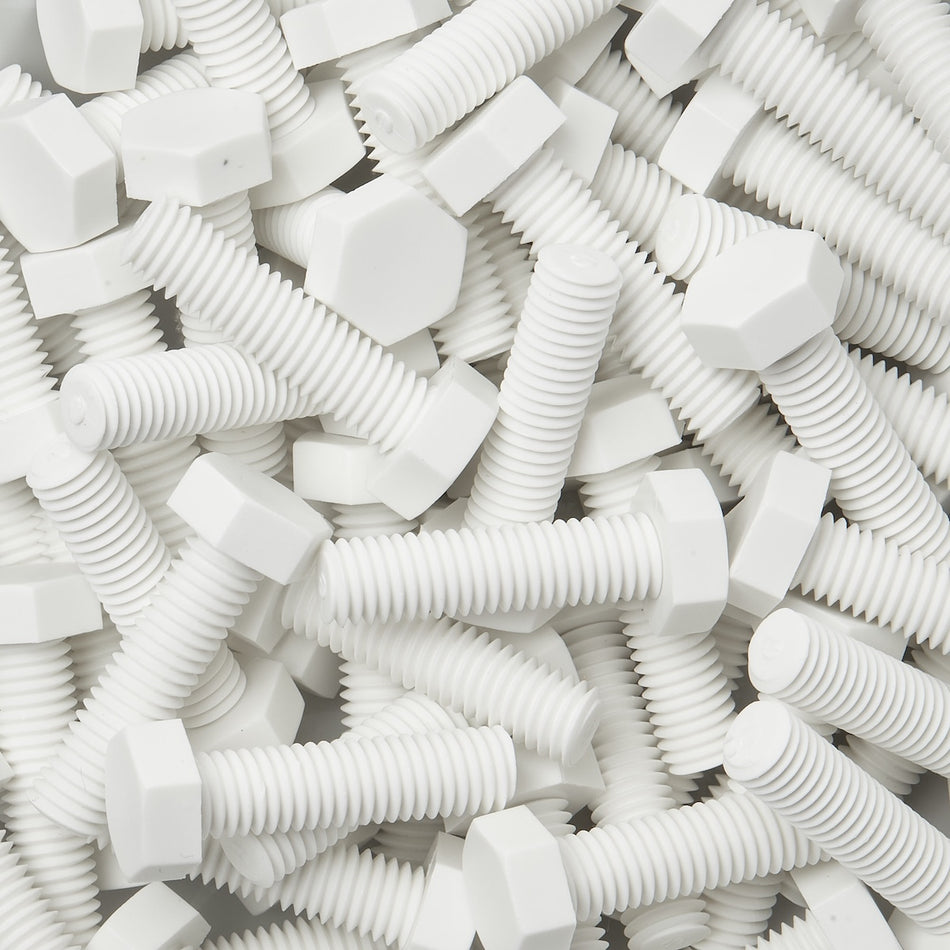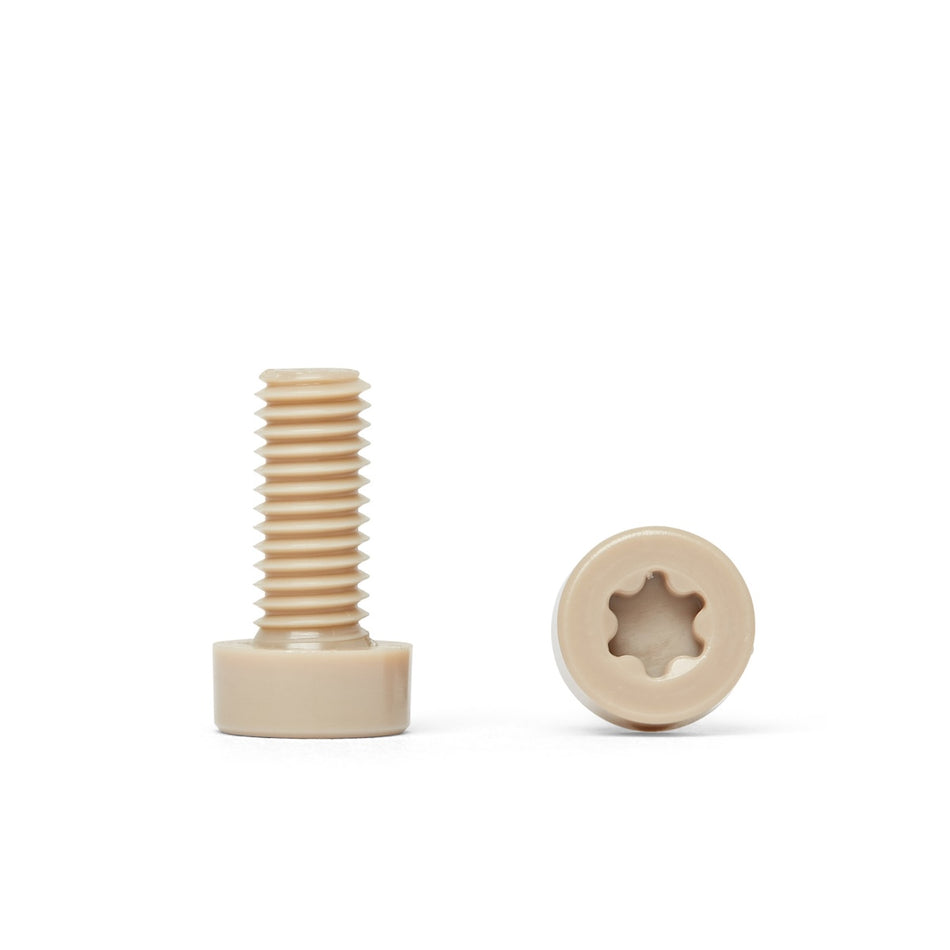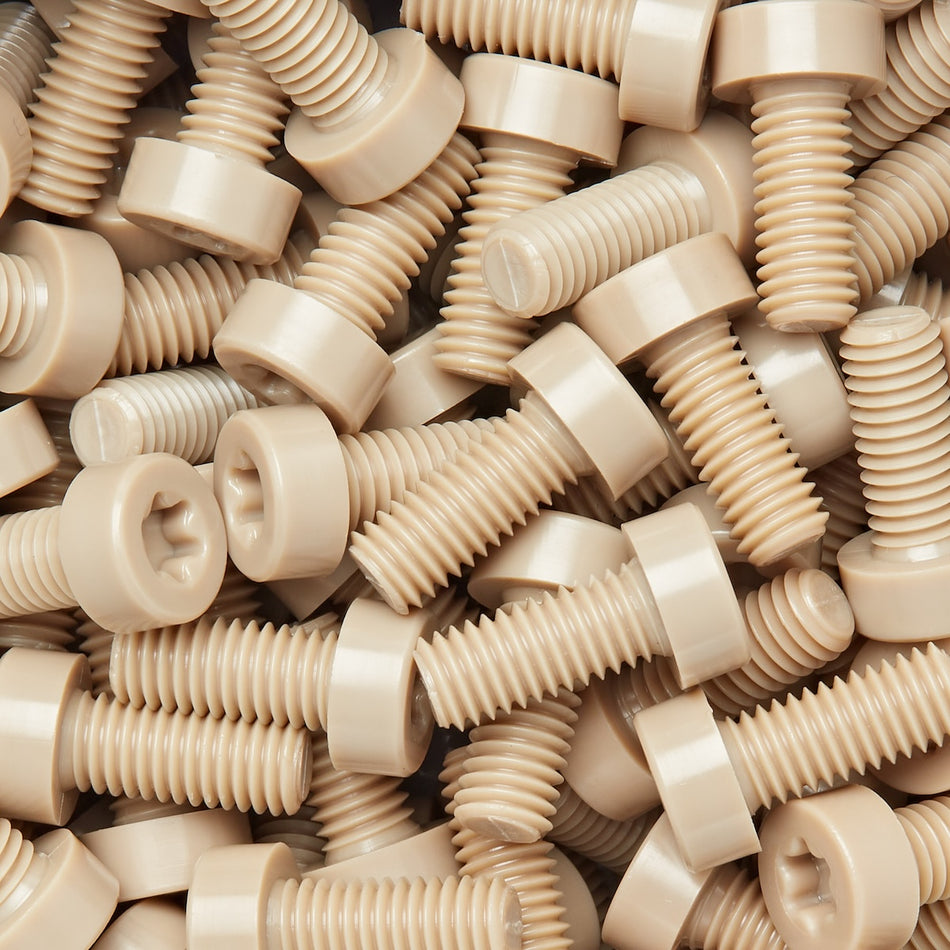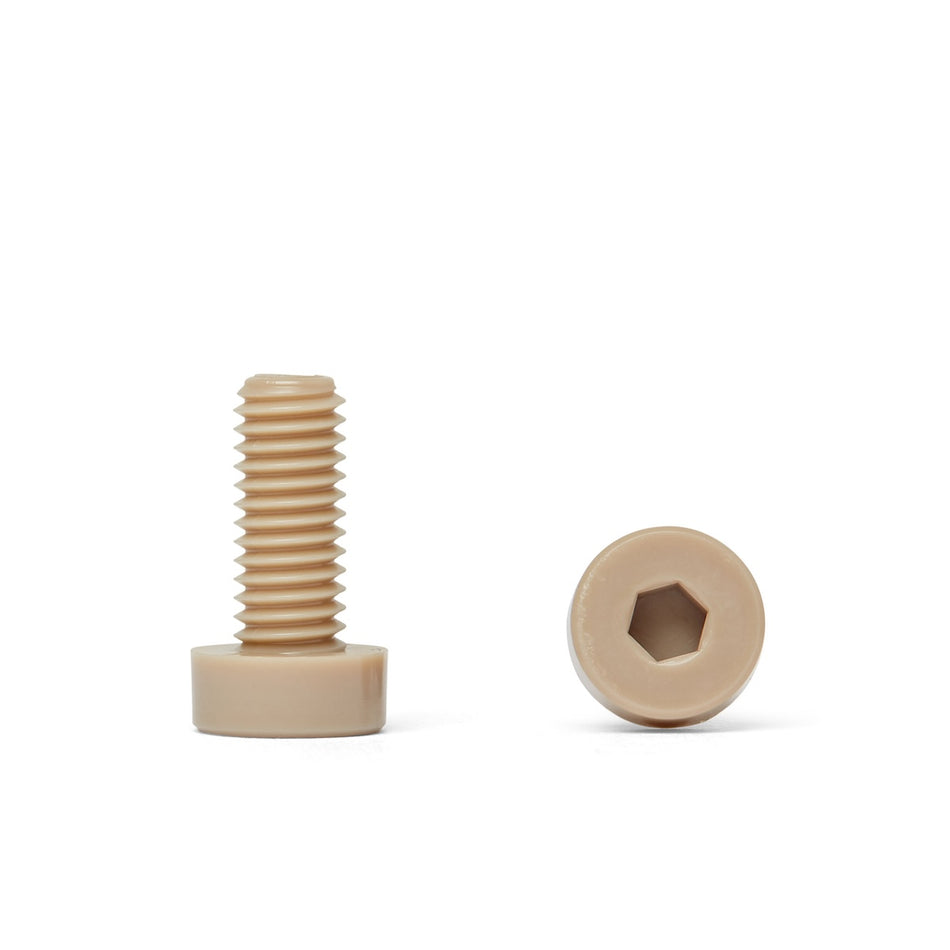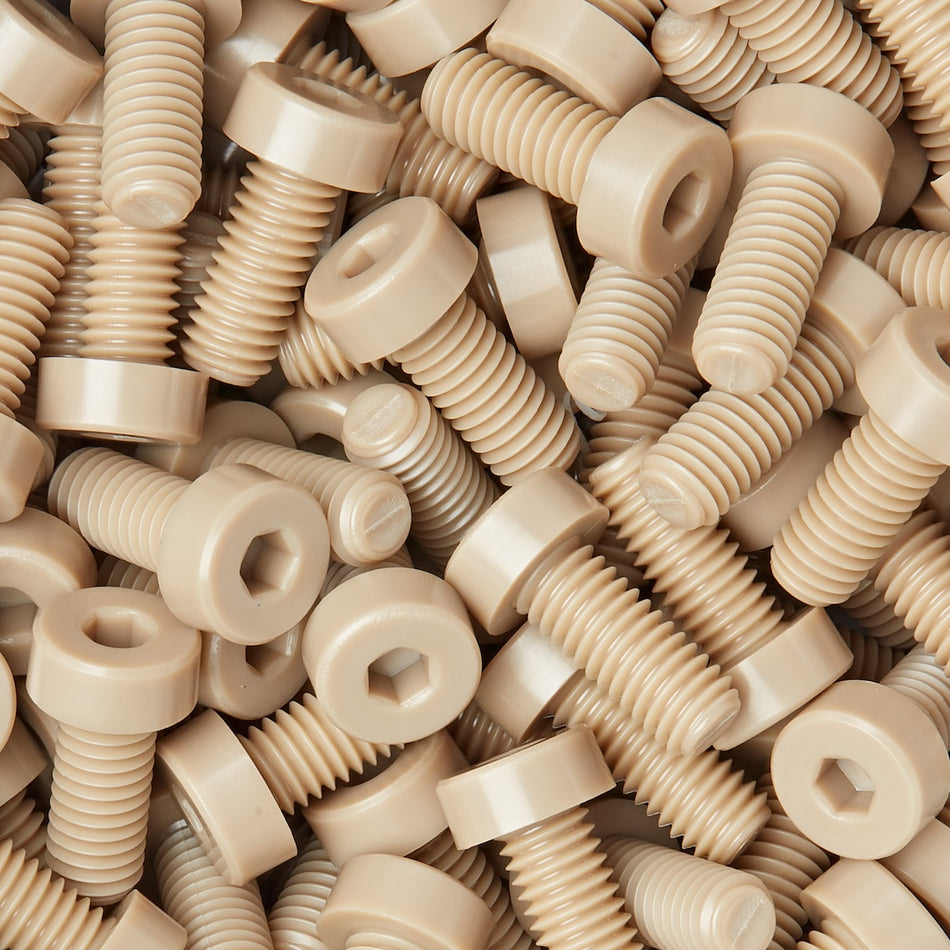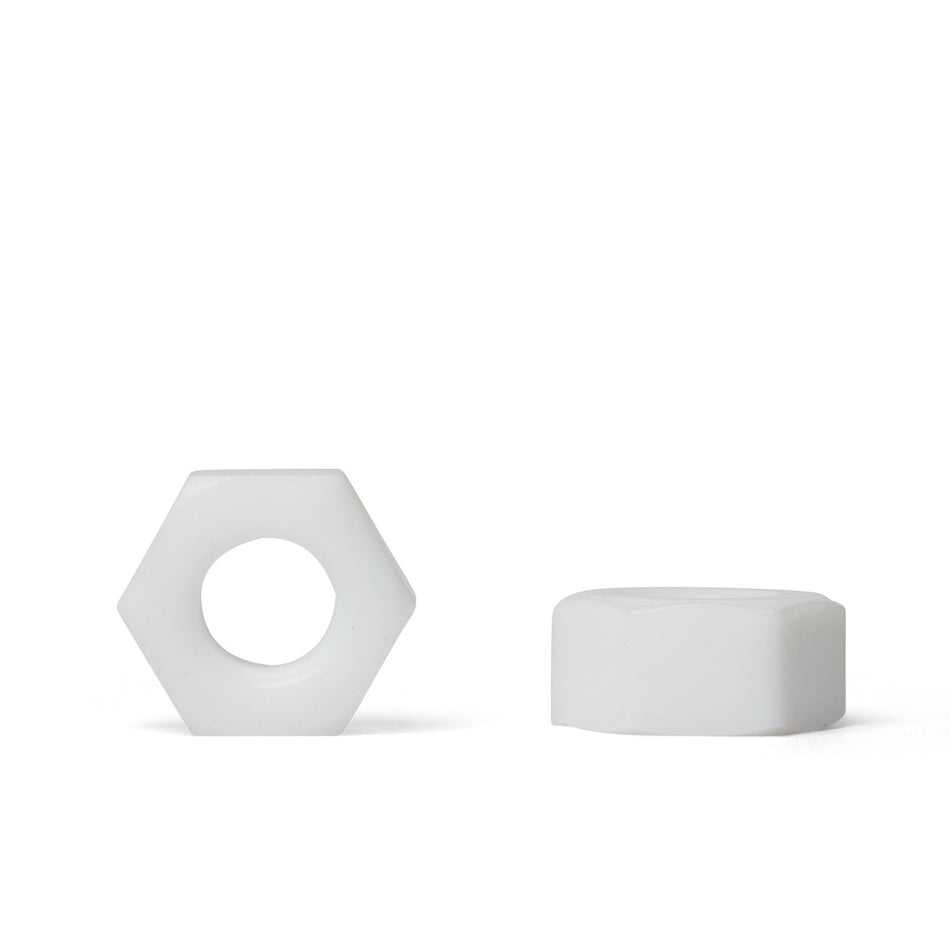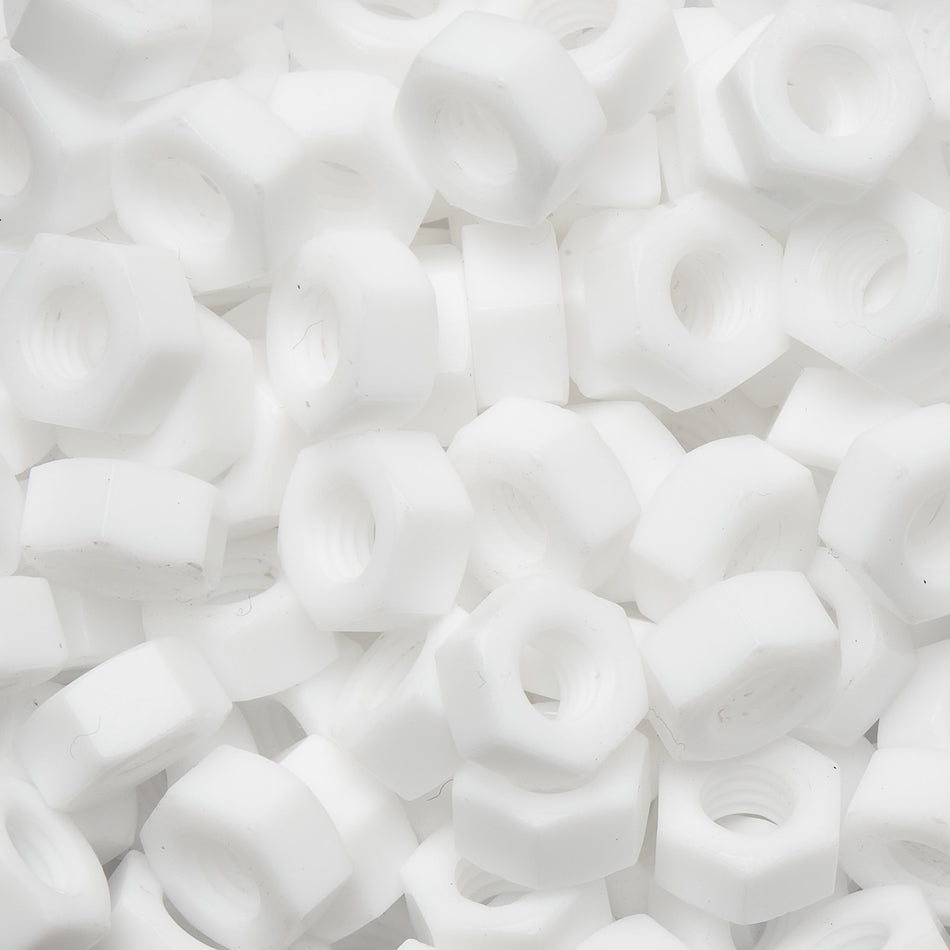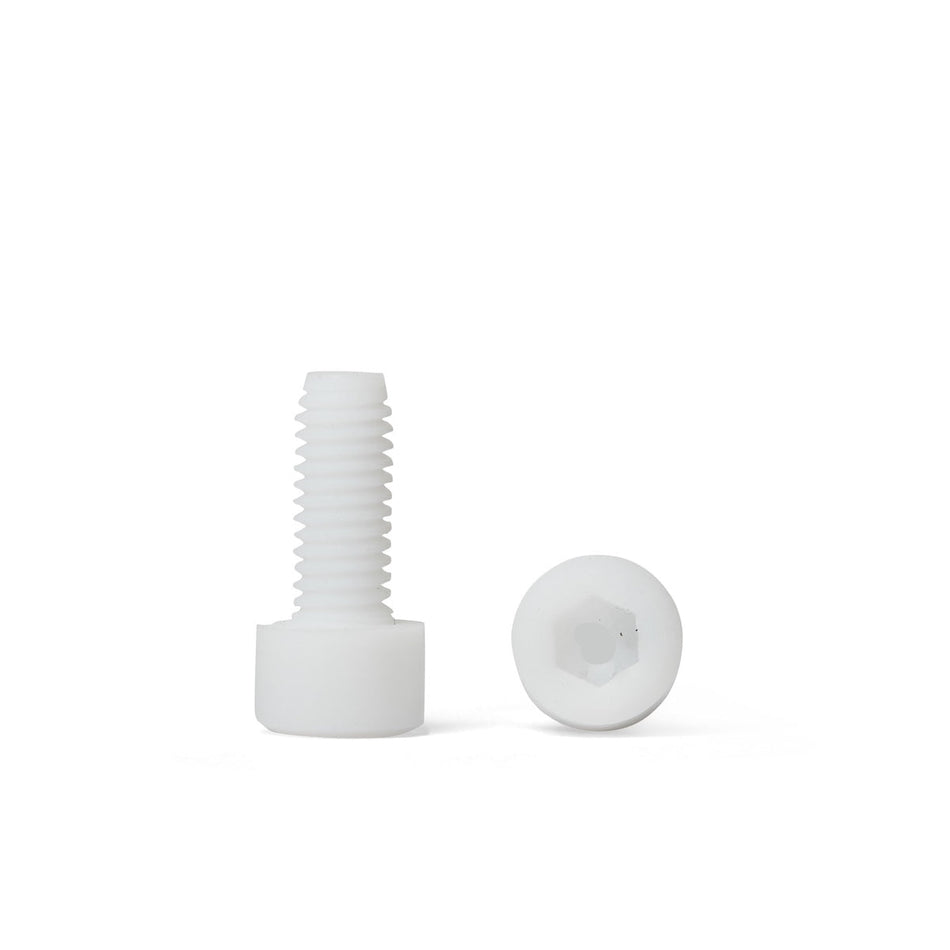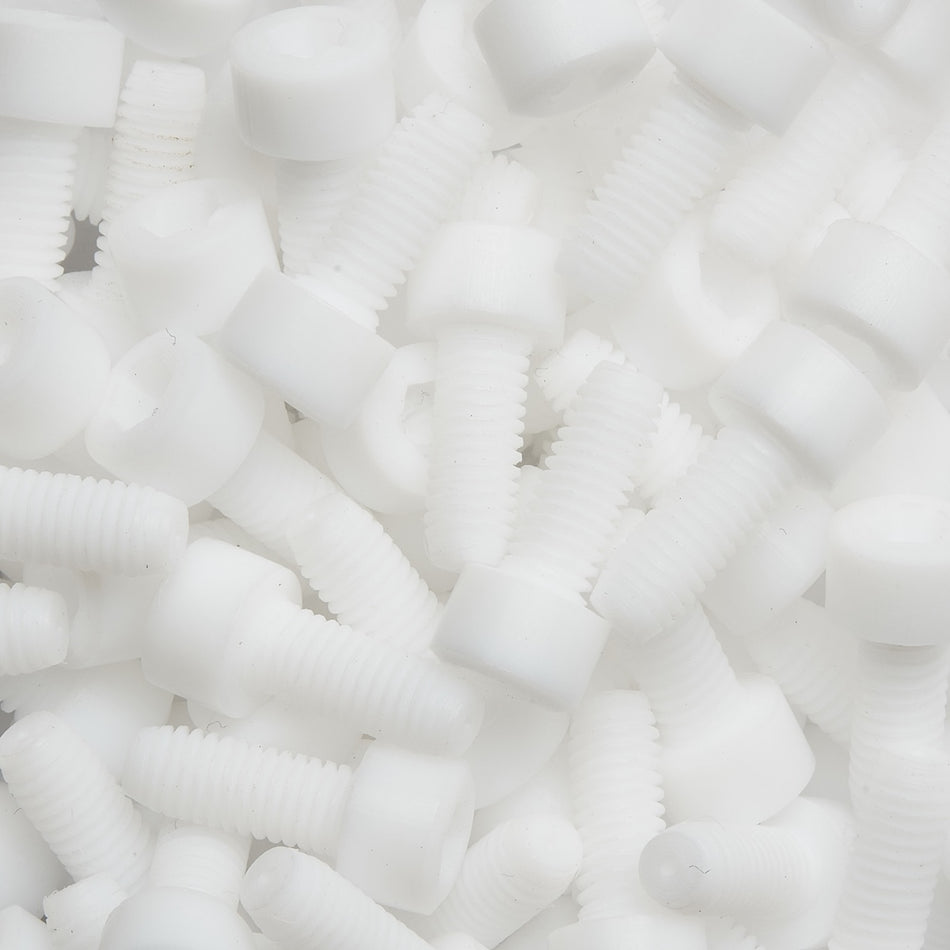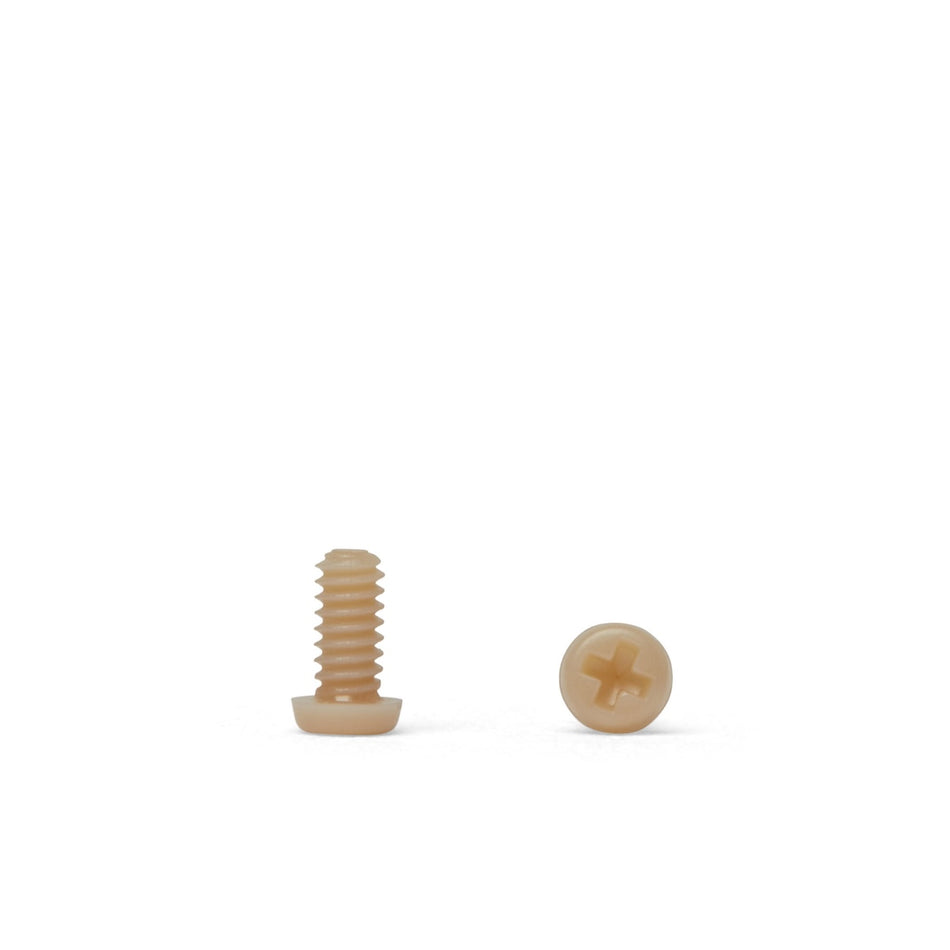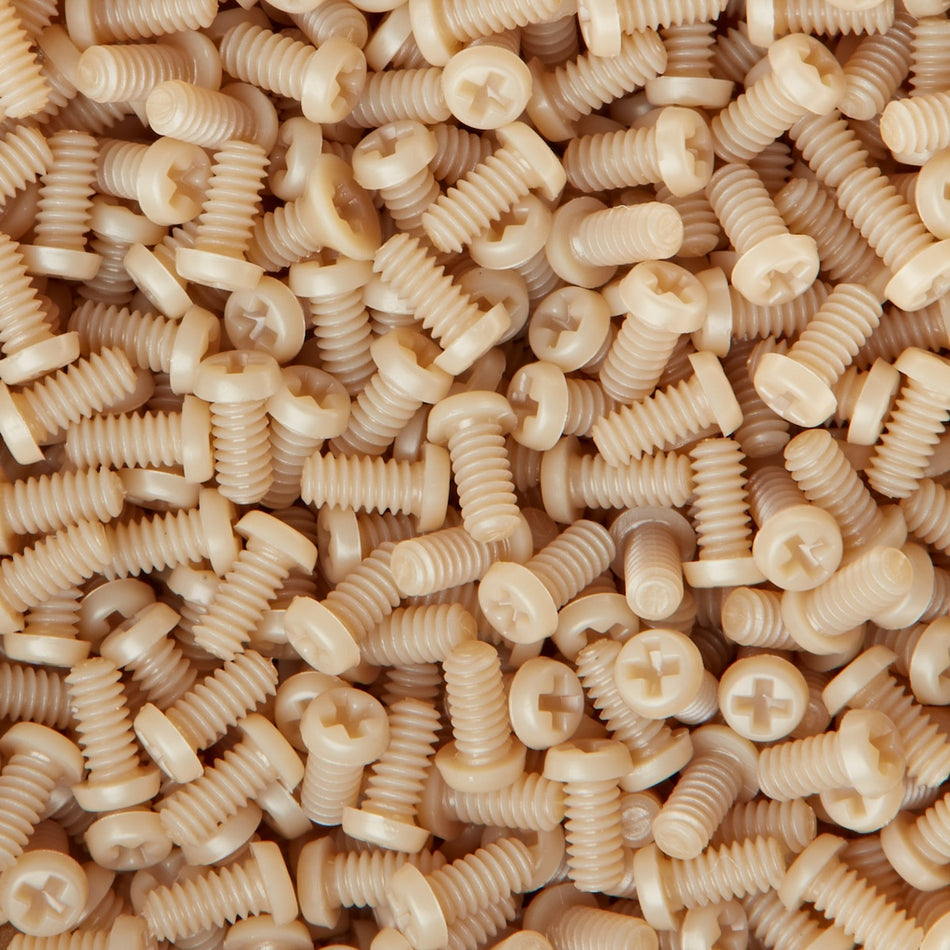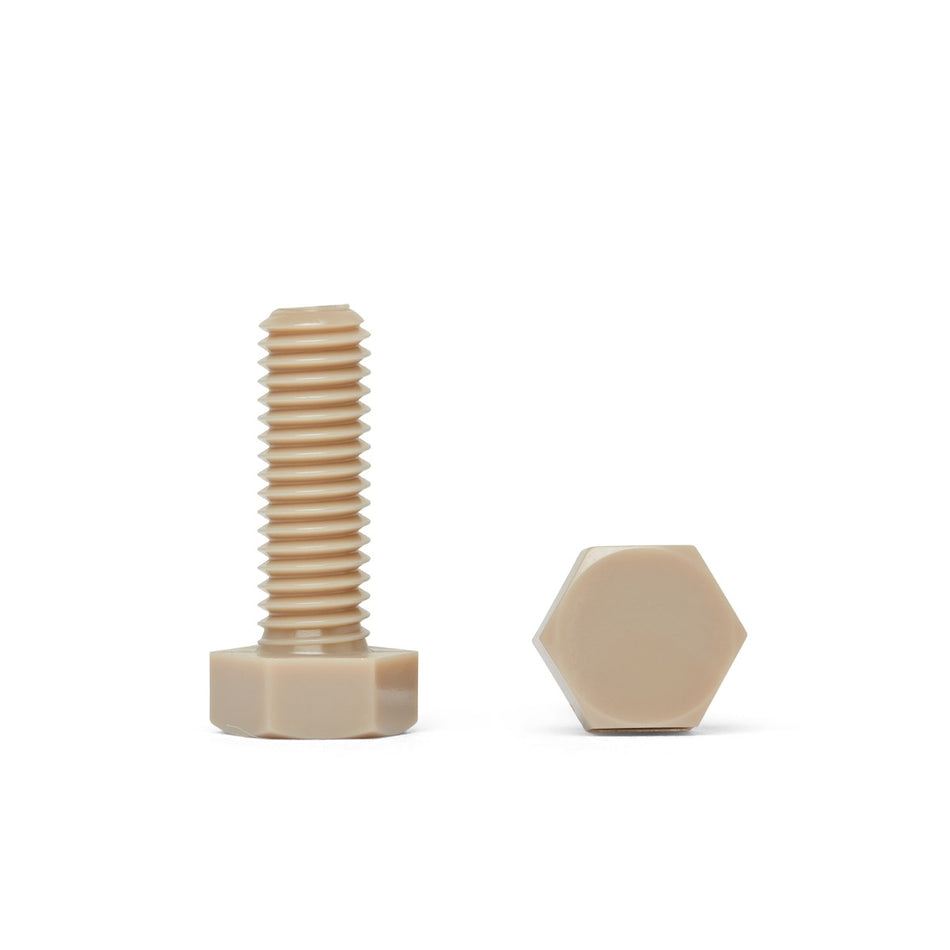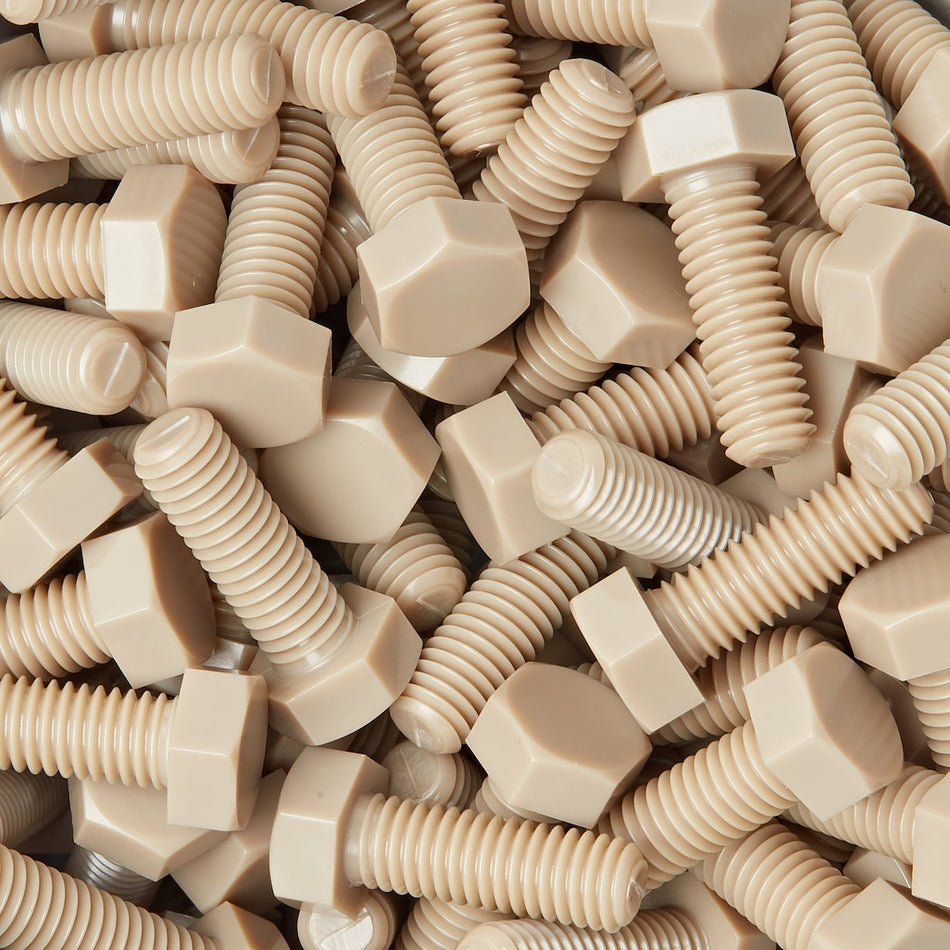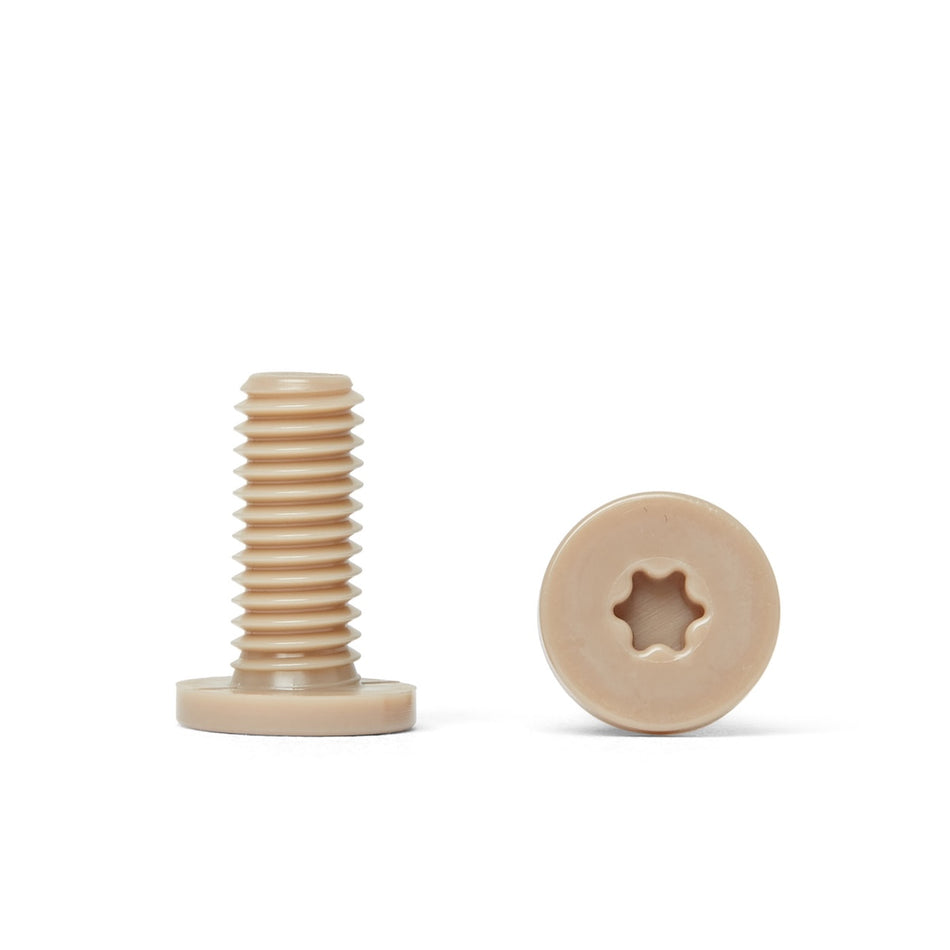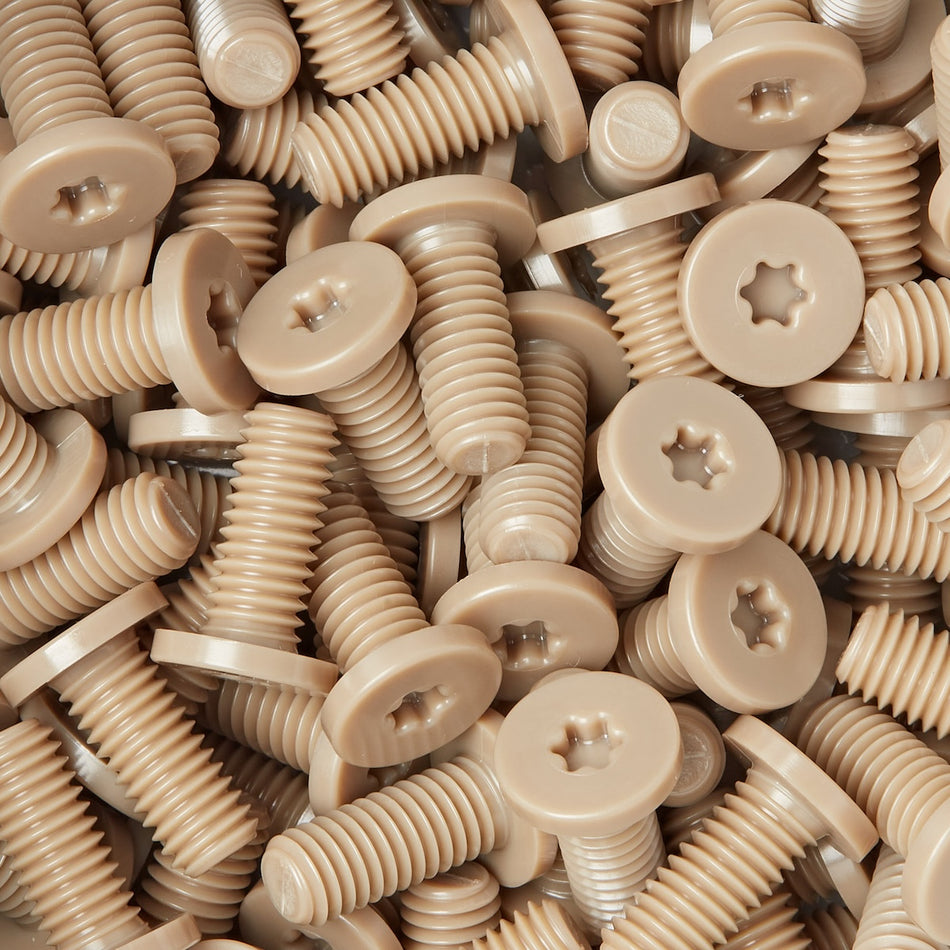200 Produkter
Kemikaliebeständiga skruvar, muttrar, bultar, brickor och fästelement
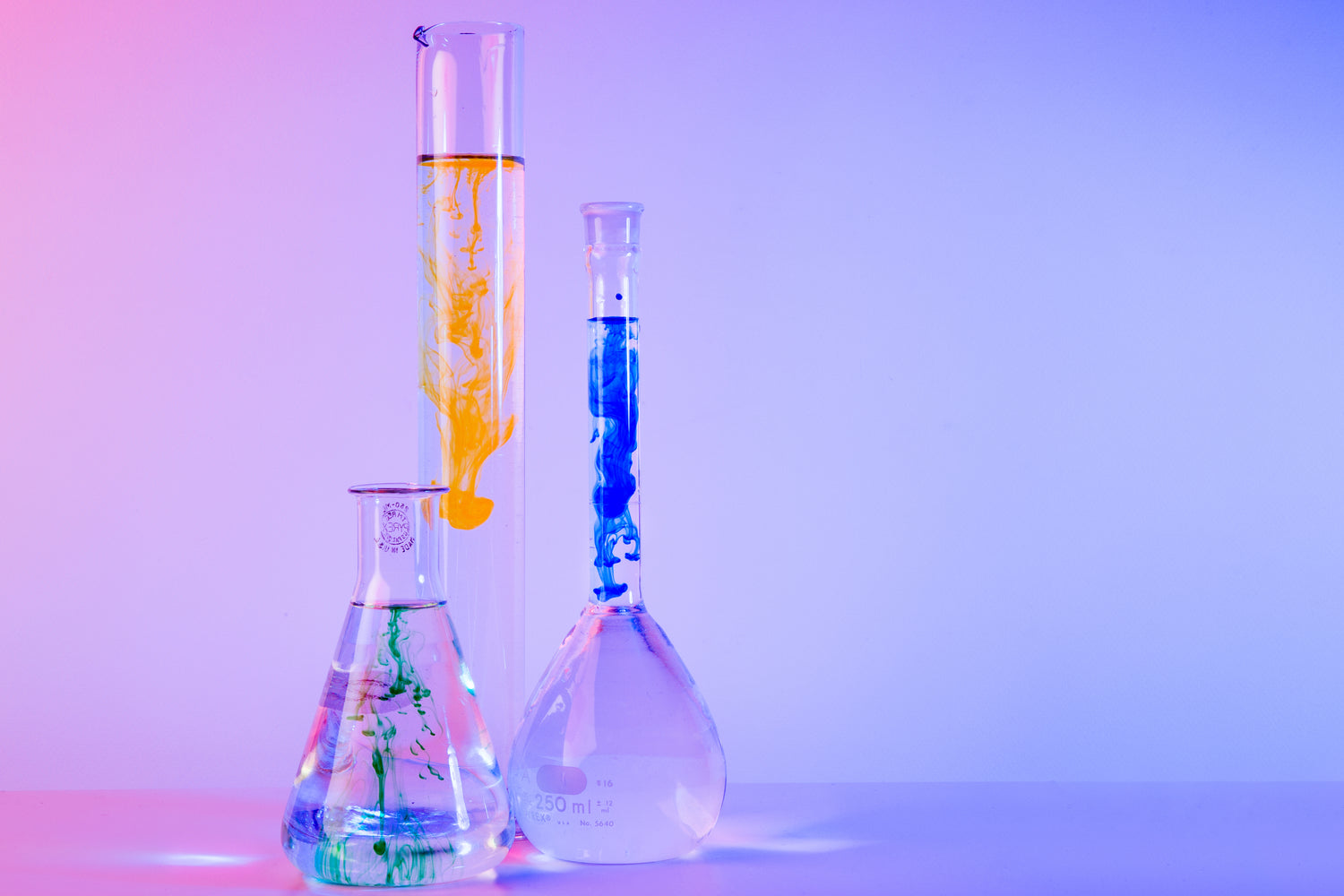
Why Are Chemical Resistant Fasteners Needed?
Chemical resistant screws, nuts, bolts, washers, and fasteners are an important component in many applications where chemical exposure is a concern, and they can help to extend the service life of fasteners and improve the reliability of equipment and structures in chemically challenging environments.
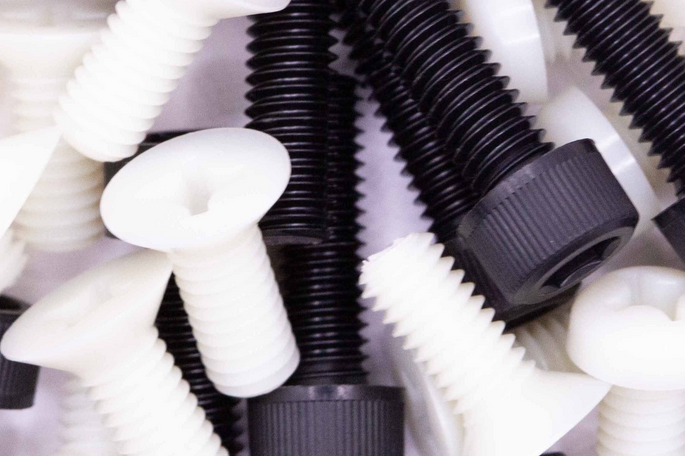
Chemical Resistant Polymer Fasteners
Chemical resistant polymer fasteners are a type of fastener that is made from polymers, or plastic materials, that are resistant to chemical corrosion. These are used in a wide range of applications where exposure to chemicals could be a problem, and they offer several benefits over traditional metallic fasteners.
One of the main benefits of chemical resistant polymer fasteners is their lightweight and easy-to-handle properties. This makes them particularly suitable for use in applications where weight is a concern, such as in the aerospace and automotive industries. Polymer fasteners are also typically easier to install than metal equivalents, as they do not require specialized tools or equipment.
In addition to their lightweight and easy-to-handle properties, chemical resistant polymers offer good electrical insulation properties. This makes them suitable for use in electrical and electronic applications where electrical insulation is important.
There are several types of chemical resistant polymer fasteners, including polyetheretherketone (PEEK), polyvinyl chloride (PVC), and polyvinylidene fluoride (PVDF). PEEK fasteners are known for their excellent mechanical and thermal properties, as well as their resistance to a wide range of chemicals. PVC fasteners are also known for their good mechanical and thermal properties, as well as their resistance to UV light and weathering. PVDF fasteners are known for their excellent chemical resistance, making them suitable for use in corrosive environments.
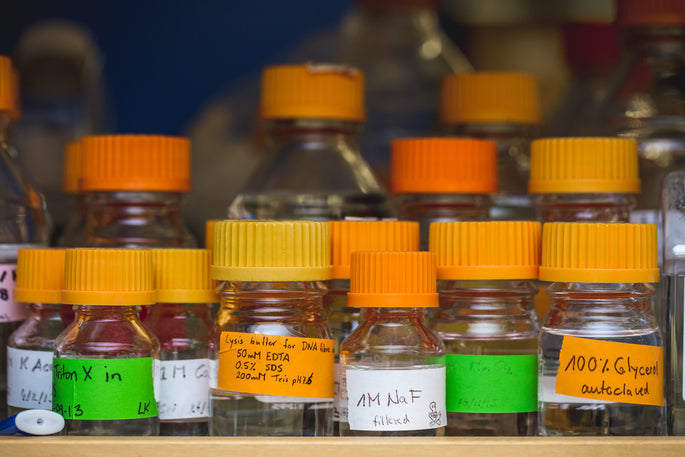
What are chemical resistant fasteners used for?
Chemical-resistant fasteners are essential in industries where exposure to corrosive substances and harsh environments is frequent. They are widely used in chemical processing plants, refineries, and wastewater treatment facilities, where they ensure the integrity of equipment and structures by resisting degradation from acids, solvents, and other aggressive chemicals. These fasteners are also critical in the pharmaceutical and food industries, where maintaining hygiene and preventing contamination is crucial. In marine applications, chemical-resistant fasteners help prevent corrosion from saltwater, while in the aerospace and automotive sectors, they provide durable solutions for components exposed to extreme conditions.
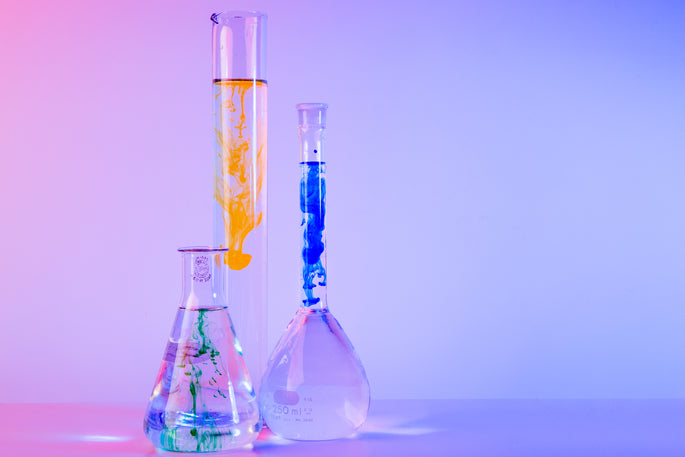
What Are Chemical Resistant Fasteners?
Chemical resistant screws, nuts, bolts and washers are fasteners that are designed to resist the effects of chemical exposure. They are used in a variety of applications where chemical exposure is a concern, such as in the chemical or pharmaceutical industries, or in environments where corrosive substances are present.
Kemiskt resistenta skruvar, muttrar, bultar, brickor och fästelement är fästelement som är konstruerade för att motstå effekterna av kemisk exponering. De används i en mängd olika tillämpningar där kemisk exponering är ett problem, t.ex. inom den kemiska eller farmaceutiska industrin, eller i miljöer där korrosiva ämnen förekommer.
Det finns flera olika sätt att göra fästelement kemiskt resistenta, bland annat genom att använda kemiskt resistenta material och applicera kemiskt resistenta ytbeläggningar. Några vanliga material som används för kemiskt resistenta fästelement är rostfritt stål, mässing och brons, samt vissa typer av plast eller polymer. Dessa material är motståndskraftiga mot korrosion och andra typer av kemisk nedbrytning tack vare sina inneboende kemiska egenskaper, och de används ofta i miljöer där kemisk exponering är ett problem.
Förutom att använda kemiskt resistenta material kan även kemiskt resistenta beläggningar appliceras på fästelement för att ge ett ytterligare lager av skydd mot kemisk exponering. Dessa beläggningar kan appliceras genom processer som galvanisering, anodisering eller målning, och de kan bidra till att skydda det underliggande materialet från effekterna av kemisk exponering.
Kemiskt resistenta skruvar, muttrar, bultar, brickor och fästelement är viktiga komponenter i många tillämpningar där kemisk exponering är ett problem, och de kan bidra till att förlänga fästelementens livslängd och förbättra tillförlitligheten hos utrustning och strukturer i kemiskt krävande miljöer.

